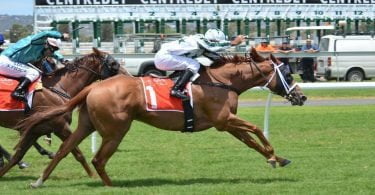Let’s be honest. Every time the Queens Park Rangers midfielder Joey Barton takes to Twitter, fans and others laugh at the absurdities of his outrageous 140-character tirades.
Let’s be honest. Every time the Queens Park Rangers midfielder Joey Barton takes to Twitter, fans and others laugh at the absurdities of his outrageous 140-character tirades. It has also been a source of controversy for Barton, as he faces charges from the Football Association stemming from abuse against Manchester City’s Carlos Tevez, Vincent Kompany and Sergio Aguero, chronicled from the Premier League final.
Yet, when it comes to the vehicle of Twitter, which Barton appears to be the expert of on QPR, he and the FA butt heads. A written warning from the FA (as part of wide concerns expressed by the Association to all leagues and clubs in the UK) has not stopped Barton from expressing his views on the social networking site to his one and a half million followers. Barton’s tirades getting him into trouble are by no means news however. He started using Twitter, according to a report from the Daily Mirror, while he was a player for Newcastle United.
The FA is right to be worried. Disciplinary cases have risen because of comments on Twitter not just by Barton but by other footballers, notably Leicester City’s Michael Ball, who was fined £6,000 for posting homophobic comments on the site back in January. In addition at the time, Barton criticised not only the FA (he referred to them as an Orwellian organisation) but the former QPR manager Neil Warnock. ‘Not a big fan of people that try to make scapegoats out of others,’ Barton wrote at the time. ‘If you live by the sword, you die by it. If I talked about Neil, he’d do well to get another job. Twitter cost him his job???? I can think of a million other things! #shutitwarnock Neil Warnock saying I talk too much.’
Barton’s tirade hasn’t stopped there. He faced criticism last week for calling Match of the Day presenter Gary Lineker an ‘odious little toad’. He also referred to the former Newcastle United boss Alan Shearer as a p—k, adding that he despised him.
Senior sources at the FA told the Daily Telegraph that any attacks would undermine the clubs and the players, and the organisation is consistently monitoring players’ remarks on the site. The sources added that the FA recognised social media and its potential, and that seminars had been arranged to educate players and clubs about its potential, and what can go wrong.
Twitter has become an essential way of communication for football within the last few years, either from journalists covering the game or fans, managers and players having their say on the verdict. This is not a time to blame Twitter for the actions but the user, and Joey Barton time and again has crossed the line. Footballers should be allowed to have their say, but like in any profession, you must self-censor. As a result, those footballers who likely would not take to Twitter the way Barton does are being reprimanded.
Let us all learn from Barton the philosopher in this way—watch what you post on Twitter, because in the end, it may come back to haunt you, and especially if you were considering a team change or a career move, something you might have ended up saying may cost you the next opportunity to advance.








